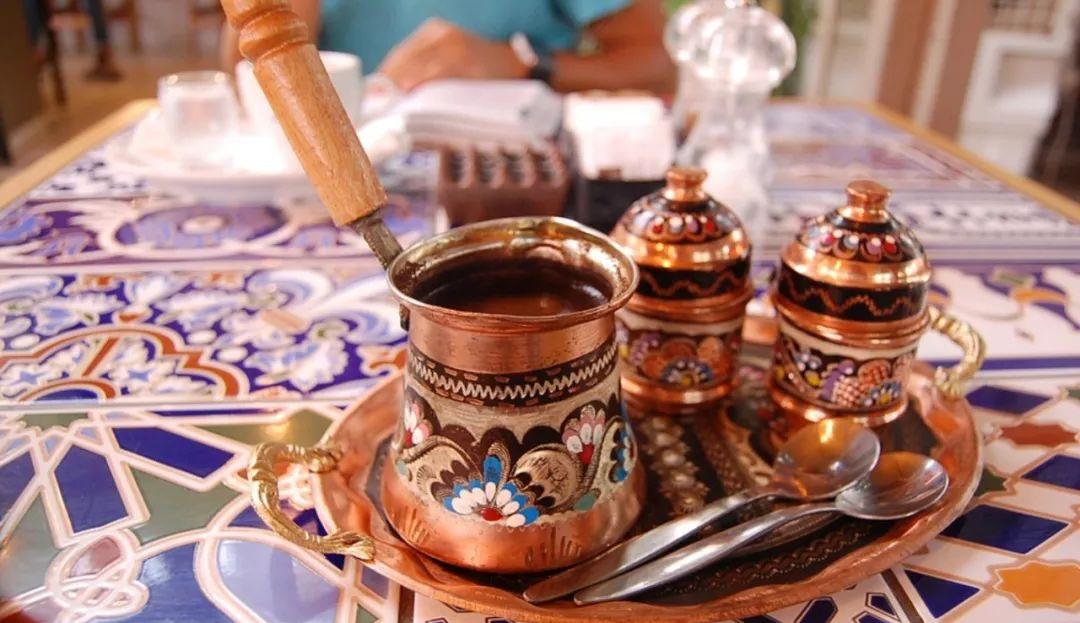Coffee is a popular drink around the world, but did you know? The practice of drinking coffee actually originated in the Arab region and only spread to Europe in the 17th century. Even during its first introduction to Europe, it earned the title of "The Wine of Islam".

The origin of coffee
There are many different accounts of the source of drinking coffee today, but the more common one is that the Arabs believe that in the fifteenth century in Ethiopia or Yemen, a shepherd found that his flock would jump after repeatedly eating a plant, and people found that coffee could refresh the mind, and the Ethiopians ate coffee as a refreshing raw food.
Due to the frequent exchanges between Ethiopia and Yemen, Armenia, Persia, Turkey, North Africa and other places were introduced through arabs, and then to Europe and the Americas by the shrewd Arab traders of the Islamic world. Yemen and Ethiopia should be the original places of coffee beans, and Yemenis were the first to roast coffee beans as an ingredient. The famous Arabica refers to Yemeni Arabica, and Mocha coffee traces its origin to the Yemeni port of Mocha.
Arabic coffee hospitality
In Arab societies, Arabic coffee is seen as a gift of generosity and is a very important form of hospitality.
Traditionally, coffee is prepared in front of guests. The beans are first selected, and when the beans are selected, they are placed in a shallow saucepan, placed on the stove and slightly baked, and then mashed in a copper mortar with a copper pestle. The ground coffee is then placed in a large copper coffee pot, added water and heated on the stove. The brewed coffee is poured into a smaller coffee pot and then into small cups.
According to the custom, drinking a cup of coffee is a tribute to the master, drinking two cups indicates ease, but if the third cup is drunk, it means that you are willing to guard the master with a sword, which means crossing the line. If the hostess is not there, the hostess serves coffee and drinks a cup of respect, but if you drink two cups, it represents the frivolity and contempt for the hostess. In addition, if you shake the empty cup from side to side, thank you, then the owner will not pour another cup.
In some parts of Saudi Arabia, hosts only pour five points full when pouring coffee, because pouring it full is an insult. In addition, when drinking Arabic coffee, it is necessary to hold the cup with the right hand and the pot with the left hand, because this represents the traditional concept of "right respect and left inferiority". In Arab societies, regardless of gender or class, everyone knows how to enjoy coffee, especially at home.
Arab patriarchs and chiefs were accustomed to serving coffee at meeting places, and they, along with older Bedouin men and women and merchants who bought and sold coffee, were considered the main inheritors of coffee culture. This knowledge and tradition is passed on from generation to generation in the family through observation and practice. Younger family members also accompany the elderly to the market to learn how to pick the best coffee beans.
Arabic coffee is full of elegance, the etiquette of drinking coffee is mysterious, adding cloves, cardamom, cinnamon coffee, its aroma is full of rooms, carefully and slowly tasting, that is the beginning of learning culture, Arab coffee culture and its country, the legend of one thousand and one nights is as mysterious, but also as elegant and beautiful as the Arabian belly dance but full of legends.
Disclaimer: Some of the image sources in this article are network, some of the content of the website such as pictures, we will respect the original copyright to indicate the source, but due to the large number, there will be individual pictures and texts in the future, please forgive me. If the original author has any dispute can contact the website to deal with, once verified we will immediately correct, by the "coffee workshop" collation and editing, reprint please indicate, this article is intended to spread coffee culture, if infringement please inform to delete, thank you ~!